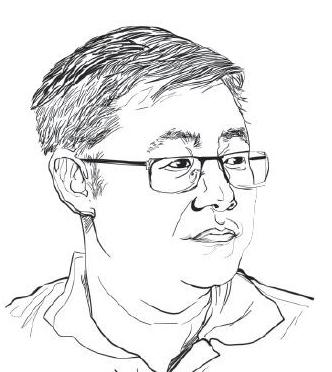科学教师要理解科学本质

在科学史和科学教育中,对科学本质的认识,是一项非常重要的内容,因为它能影响科学和科学教育的发展。一般认为,科学是反映客观事物本质和运动规律的知识体系,是科学知识、科学方法和科学精神三个方面组成的一个不可分割的有机整体。尽管科学界和教育界对科学本质的表述不尽相同,但基本认识是一致的。
我国初中科学课程标准中,明确提出“初中科学课程是体现科学本质的课程”的观点,并对科学本质做了描述,主要观点是:科学知识是人类对客观世界和自身的系统认识,科学知识的形成是一个不断修正的过程;科学是建立在证据和理性思维基础上的;科学是一个开放的系统,科学知识具有相对稳定性,但不是绝对的真理,可验证性是科学知识的重要特征;科学建立在诚信的基础上,崇尚求真务实、坚持真理和创新,也受科学道德和一般社会道德的双重约束。
美国《国家科学教育标准》提出,科学是格物致知的一种路径,其基本特点是以实证为判别尺度,以逻辑作论辩的武器,以怀疑作审视的出发点。
英国学者温·哈伦编著、韦钰院士翻译的《科学教育的原则和大概念》一书中,提出了若干科学本身的大概念,如:科学认为每一种现象都具有一个或多个原因;科学上给出的解释、理论和模型都是在特定的时期内与事实最为吻合的;科学发现的知识可以用于开发技术和产品,为人类服务;科学的应用经常会对伦理、社会、经济和政治产生影响。
教师对科学本质的理解程度,影响着学生的科学价值观形成,也决定着教师的教学水平。曾经有一位科学教师,在执教磁铁的性质时,为学生演示消磁的实验。教师首先用磁化的螺丝刀去吸引一堆回形针,吸起了3枚,说明螺丝刀带磁性;为了证明敲击可以消磁,教师用螺丝刀在桌边敲击多次后,再去吸引回形针,发现螺丝刀还能吸引1枚,只见教师的手指轻轻一抖,螺丝刀上就没有回形针了,“顺利”地证明了敲击可以消磁。分析教师的演示过程,我们可以发现:为了求得正确的结果,教师不惜作假以达到目的。这样的结果也许一时取得效果,但是其背后所呈现出的教师对科学本质认识的缺陷,隐藏着巨大的负面影响,导致学生对证据不尊重和对所谓正确知识的盲目追求,大大削弱了科学课程的教育价值。
为了帮助一线教师理解科学,在教学中把握科学的本质特征,有科学家和教育家合作,提出从四个维度认识科学:科学是一系列的思维方式,科学是一套研究方法,科学是一种知识体系,科学要和技术与社会相互作用。科学教师要理解科学本质的主要内容,内化为自己稳定的思想。如果科学教师把科学当作永远正确的知识结果,那么教学中也会呈现科学万能的思想观点,造成教学上的唯书唯上,对科学教育不利。
研究表明,科学本质是可以教学的。从教师的角度看,阅读科学史和相关的科学哲学、科学学术著作等书籍,有利于教师加深对科学的理解。纵观科学史的发展,检视历史上科学家对科学的贡献,从中可以让人体会到科学的本质和社会功用,理解科学技术的“双刃剑”的意义,为教师进行科学教育提供良好的价值导向。
从学生的角度看,通过把科学史融入教学中,也可以很好地促进他们对科学本质的理解。对学生进行科学本质的教学,是通过一个个的教学活动达成的,教师在利用教材设计教学活动的时候,要巧妙地把科学本质的意义融入其中,如证据意识的培养,证实和证伪方法的运用,实事求是态度的培养等,这些体现科学本质的教学内容,也应该贯穿于每一节科学课中。
喻伯军
浙江省教研室副主任
小学科学特级教师
教育部科学课程标准修订组核心成员
Science Teachers Should Understand the Nature of Science
YU Bojun
中圖分类号:G424 文献标识码:A DOI:10.16400/j.cnki.kjdkx.2021.02.002
YU Bojun
Deputy Director of Zhejiang Provincial Teaching and Research Office
Primary School Science Teacher
Core member of Science Curriculum Standard Revision Group of Ministry of Education
In the history of science and science education, the understanding of the nature of science is a very important content, because it can affect the development of science and science education. It is generally believed that science is a knowledge system reflecting the essence and movement law of objective things, and an inseparable organic whole composed of scientific knowledge, scientific methods and scientific spirit. Although the scientific and educational circles have different views on the nature of science, their basic understanding is the same.
In China's junior high school science curriculum standard, it clearly puts forward the view that "junior high school science curriculum is the curriculum reflecting the nature of science", and describes the nature of science. The main points are as follows: scientific knowledge is human's systematic understanding of the objective world and itself, the formation of scientific knowledge is a process of constant revision; science is based on evidence and rational thinking; science is a process of innovation. As an open system, scientific knowledge is relatively stable, but not absolute truth, and verifiability is an important feature of scientific knowledge. Science is built on the basis of honesty, advocating truth-seeking and pragmatism, adhering to truth and innovation, and is also subject to the double constraints of scientific morality and general social morality.
According to the "National Standards for Science Education" of the United States, science is a way to seek knowledge from things. Its basic characteristics are that it uses positivism as the criterion, logic as the weapon of argument, and doubt as the starting point of examination.
In the book "Principles and Concepts of Science Education", edited by British scholar Wen Harlan and translated by academician Wei Yu, some big concepts of science itself are put forward. For example, science believes that every phenomenon has one or more reasons; the explanations, theories and models given in science are most consistent with the facts in a specific period; the knowledge of scientific discovery can be used for development Technology and products serve human beings; the application of science often has an impact on ethics, society, economy and politics.
Teachers' understanding of the nature of science affects the formation of students' scientific values, and also determines teachers' teaching level. There was once a science teacher who demonstrated degaussing experiments for students when he was teaching the properties of magnets. First, the teacher used a magnetized screwdriver to attract a pile of paper clips and picked up three, indicating that the screwdriver is magnetic. In order to prove that knocking can demagnetize, the teacher used a screwdriver to knock on the table for many times, and then went to attract the paper clips. It was found that the screwdriver could still attract one. Only when the teacher's fingers gently shook, there was no paper clip on the screwdriver, which "smoothly" proved that knocking can be used degaussing. By analyzing the process of the teacher's demonstration, we can find that in order to get the right result, the teacher does not hesitate to cheat in order to achieve the goal. Such a result may be effective for a while, but the defects of teachers' understanding of the nature of science behind it hide a huge negative impact, which leads to students' disrespect for evidence and blind pursuit of the so-called correct knowledge, and greatly weakens the educational value of science curriculum.
In order to help the front-line teachers understand science and grasp the essential characteristics of Science in teaching, scientists and educators cooperate and propose to understand science from four dimensions: science is a series of ways of thinking, science is a set of research methods, science is a knowledge system, and science should interact with technology and society. Science teachers should understand the main content of the nature of science and internalize it into their own stable thoughts. If science teachers regard science as the forever correct result of knowledge, then the omnipotent idea of science will also appear in teaching, resulting in the only book only teaching, which is not conducive to science education.
Research shows that the nature of science can be taught. From the teacher's point of view, reading the history of science and related scientific philosophy, scientific academic works and other books is helpful for teachers to deepen their understanding of science. Throughout the development of science history and the contribution of scientists to science in history, we can understand the nature and social function of science, understand the significance of "double-edged sword" of science and technology, and provide good value orientation for teachers to carry out science education.
From the perspective of students, the integration of science history into teaching can also promote their understanding of the nature of science. The teaching of the nature of science to students is achieved through teaching activities. When teachers design teaching activities with teaching materials, they should skillfully integrate the meaning of the nature of science into them, such as the cultivation of evidence consciousness, the application of confirmation and falsification methods, and the cultivation of practical attitude. These teaching contents that embody the nature of science should also run through each section in science class.

